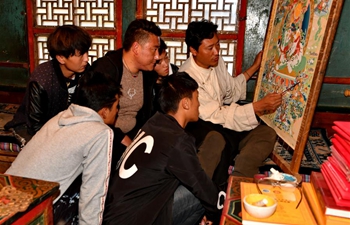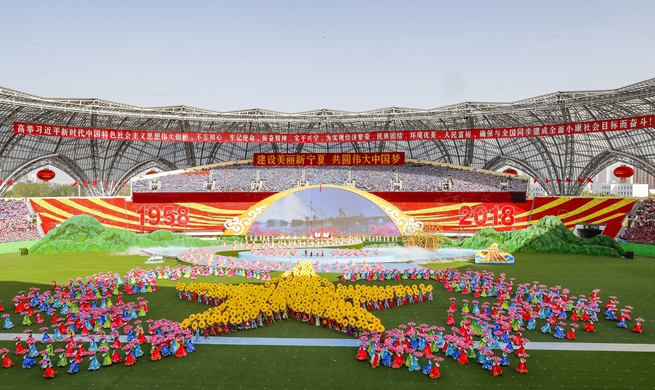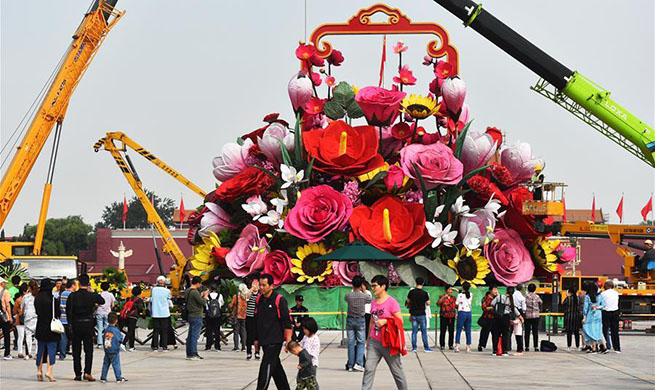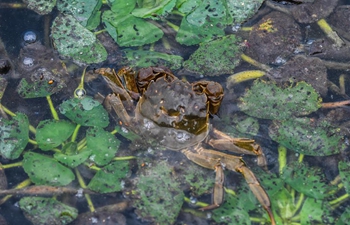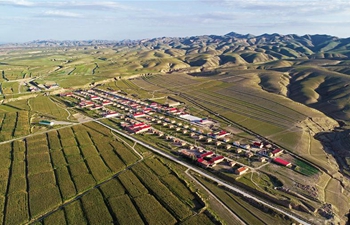SAN FRANCISCO, Sept. 20 (Xinhua) -- A Chinese artist is trying to promote his philosophy of ecological restoration among the U.S. public to raise people's awareness to save the planet.
Zhu Renmin, ink painting artist and director of joint research center for ecological restoration at Zhejiang University, brings more than 100 pieces of his artworks to Silicon Valley for permanent exhibition, which is expected to open at a gallery in Sunnyvale, California, on Sunday.
The artworks, including paintings, sculptures and sketches, all stem from Zhu's philosophy of a hands-on ecology through art and artistic interventions to save the planet, he said.
Zhu has been engaged in ecological restoration projects in China for the last four decades. His projects include Lotus Island, an island ecological landscape restoration in the East China Sea, the Lake Mingcui National Wetland Park, a desert ecological landscape restoration in the Ningxia Hui Autonomous Region, and Gushui street, the Grand Canal ecological landscape restoration in Zhejiang Province.
During a seminar, entitled "Art Saves Ecology," hosted by the art and art history department of Stanford University on Wednesday night, Zhu introduced to the U.S. audience his accomplishments through those projects.
He said his process of ecological restoration includes three phases: spiritual ecology -- meditating on the projects, natural ecology -- completing the projects in the environment and cultural ecology -- spreading this philosophy to the younger generation.
Trained as a traditional Chinese painting artist, Zhu said "My art should serve the mankind and environment" when he realized that the environment was devastated.
He said he used his own money to build the Putuo Lotus Island, which had almost disappeared because of land reclamation. Now it is a free visitors' destination and open to the public.
Economic development activities have caused more than 700 islands to vanish due to various reasons, which damaged the marine environment and triggered natural and cultural problems, said Zhu.
He then purchased the Lotus Island, and it took him 15 years of planning, design and construction to complete the project in what he called "the embodiment of my conception of spiritual, natural and cultural ecology."
Zhu said he might be the first person in the world to integrate ecological restoration with art and he believed that his philosophy and artworks, with strong traditional characters, would appeal to the international audience and benefit the mankind.
Having a permanent show in Silicon Valley, the birthplace of U.S. innovation, Zhu also said he would employ new tools of high-tech and even robotics, in his future projects.





